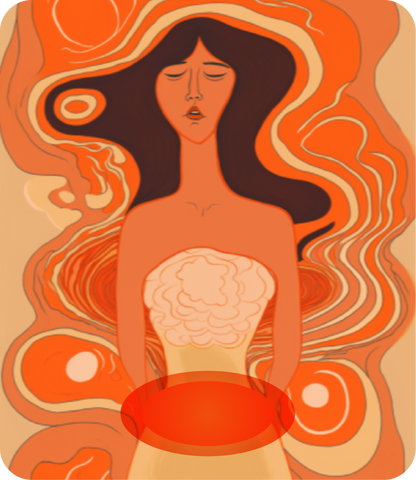
Everything you need to know about Insomnia
Insomnia is a common sleep disorder that affects millions of people worldwide. It can have a significant impact on a person’s physical and mental well-being, leading to daytime fatigue, difficulty concentrating, and other health issues.
But, what is Insomnia?
You know that feeling when you prepare yourself to sleep, but as soon as you put your head on the pillow, suddenly you can’t close your eyes? Well, that is insomnia.
Insomnia is a sleep disorder characterized by the difficulty of falling asleep, staying asleep, or both. It can be either acute, lasting for a short period, or chronic, persisting for several weeks or months. Acute insomnia is usually triggered by specific events, such as stress, jet lag, or a sudden change in sleep schedule. On the other hand, chronic insomnia may be associated with underlying medical conditions or lifestyle factors.
Sleep Needs
The amount of sleep people need may vary depending on their age and individual factors. Generally, the recommended amount of sleep is divided into different age groups as follows:
- Newborns (0-3 months): 14-17 hours per day.
- Infants (4-11 months): 12-15 hours per day.
- Toddlers (1-2 years): 11-14 hours per day.
- Preschoolers (3-5 years): 10-13 hours per day.
- School-age children (6-13 years): 9-11 hours per day.
- Teenagers (14-17 years): 8-10 hours per day.
- Young adults (18-25 years): 7-9 hours per day.
- Adults (26-64 years): 7-9 hours per day.
- Older adults (65+ years): 7-8 hours per day.
These recommended sleep durations are based on guidelines from organizations like the National Sleep Foundation and may vary slightly from one source to another. Keep in mind that individual variations, lifestyle, health conditions, and other factors can also influence the amount of sleep needed by each person. It's essential to pay attention to your body's signals and adjust your sleep schedule accordingly to ensure you get adequate rest and maintain overall well-being.
Causes of Insomnia
Several factors can contribute to the development of insomnia, these are some but not the only ones:
- Stress and Anxiety: Everyday stressors and anxiety can lead to racing thoughts and an inability to relax, making it difficult to fall asleep.
- Poor Sleep Habits: Irregular sleep schedules, excessive napping during the day, and engaging in stimulating activities before bedtime can disrupt sleep patterns.
- Medical Conditions: Insomnia can be a symptom of certain medical conditions, such as depression, chronic pain, asthma, or gastrointestinal disorders.
- Substance Use: Consuming caffeine, nicotine, or alcohol close to bedtime can interfere with sleep quality.
- Environmental Factors: Noise, light, or an uncomfortable sleeping environment can disturb sleep.
Related to: 6 Powerful Herbal Allies to Help Alleviate Stress
Symptoms of Insomnia
Identifying the symptoms of insomnia can help in seeking appropriate treatment, it is important to keep in mind that insomnia symptoms may vary from person to person, these are the most common ones.
- Difficulty Falling Asleep: Taking an unusually long time to fall asleep after going to bed.
- Frequent Awakenings: Waking up multiple times at night and having difficulty going back to sleep.
- Daytime Fatigue: Feeling tired and groggy throughout the day, leading to reduced productivity.
- Irritability and Mood Changes: Insomnia can contribute to irritability, mood swings, and heightened emotional sensitivity.
- Poor Concentration and Memory: Sleep deprivation can affect cognitive functions, making concentrating and remembering things challenging
Treatment Options
Fortunately, insomnia is a treatable condition, and several strategies can help improve sleep quality:
- Optimize Your Circadian Rhythm: Optimizing your circadian rhythm helps with insomnia by regulating your body's internal clock, promoting a consistent sleep-wake cycle. Aligning your sleep schedule with your circadian rhythm improves the quality of sleep and enhances the production of melatonin, the hormone responsible for promoting sleep. This synchronization reduces sleep onset latency, increases sleep efficiency, and contributes to overall better sleep patterns, reducing the symptoms of insomnia.
- Cognitive-Behavioral Therapy (CBT): Cognitive Behavioral Therapy for insomnia (CBT-I) helps by addressing the psychological and behavioral factors that contribute to sleep problems. It targets negative thought patterns and behaviors that perpetuate insomnia, teaching individuals techniques to restructure their thoughts, manage anxiety related to sleep, and establish healthier sleep habits. By changing these patterns, CBT-I can improve sleep quality, reduce the time it takes to fall asleep and enhance overall sleep duration.
- Supplements: There is a historical and clinical use of hypnotic and sedative herbs that can support one's ability to go to sleep and stay asleep. Supplements can help with insomnia by providing specific nutrients that support relaxation, sleep regulation, and overall sleep quality. There are many in the market and we invite you to try our lights out formula that has been specifically designed to help you go to sleep quicker.
- Relaxation Techniques: Relaxation techniques, such as deep breathing, progressive muscle relaxation, and mindfulness meditation, can help with insomnia by calming the nervous system and reducing stress and anxiety. By engaging in these practices, individuals can lower physiological arousal, promote a sense of tranquility, and create an environment conducive to falling asleep and maintaining a more restful sleep throughout the night. Developing a habit of these practices before bedtime will also reinforce the message to your body that it is time to sleep.
- Medications: In some cases, doctors may prescribe medications to help with insomnia, but they should only be used under medical supervision.
Preventing and Alleviating Insomnia
While not all instances of insomnia can be prevented, certain lifestyle changes can reduce the risk and alleviate the intensity:
- Maintain a Consistent Sleep Schedule: Going to bed and waking up at the same time every day helps regulate your body's internal clock, known as the circadian rhythm. This consistency reinforces the brain's association between your bedtime and sleep onset, promoting a more synchronized sleep-wake pattern. By adhering to this schedule, you enhance the efficiency of your sleep process and reduce the likelihood of difficulties falling asleep or staying asleep.
- Limit Caffeine and Alcohol: Caffeine and alcohol are both substances that can interfere with sleep. Caffeine is a stimulant that blocks adenosine receptors in the brain, hindering the onset of sleepiness. Even consuming caffeine several hours before bedtime can disrupt sleep initiation. Alcohol, while initially sedating, disrupts sleep architecture by fragmenting sleep cycles and reducing the amount of restorative deep sleep. Limiting consumption of these substances, particularly in the hours leading up to bedtime, helps preserve the natural sleep cycle and promotes more restful sleep.
- Create a Relaxing Bedtime Routine: Engaging in relaxing activities before sleep aids in the transition from wakefulness to sleep. Reading, taking a warm bath, or practicing deep breathing exercises can activate the body's relaxation response, which counteracts stress hormones and facilitates the onset of sleep. These calming activities help disengage the mind from daily stressors and lower physiological arousal, creating an environment conducive to falling asleep more easily and experiencing fewer sleep disturbances.
- Exercise Regularly: Regular physical activity offers numerous benefits for sleep. Exercise increases the release of endorphins and can regulate mood, reducing symptoms of anxiety and depression that can contribute to insomnia. It also helps regulate the circadian rhythm, promoting synchronization between wakefulness and sleepiness. However, intense exercise close to bedtime can elevate heart rate and body temperature, making it more challenging to wind down. Aim for moderate exercise earlier in the day to reap the sleep-enhancing effects without disrupting your sleep onset.
Incorporating these lifestyle changes can have a positive impact on your sleep quality and overall well-being, helping to prevent or alleviate insomnia by aligning your behaviors with the natural processes that regulate sleep.
Related to: Our Herbal Softgels
Sources
(n.d.). Insomnia. Cleveland Clinic. https://my.clevelandclinic.org/health/diseases/12119-insomnia
(n.d.). How Much Sleep Do You Need? National Sleep Foundation. https://www.thensf.org/how-many-hours-of-sleep-do-you-really-need/
(n.d.). Do I Have Insomnia? National Sleep Foundation. https://www.thensf.org/do-i-have-insomnia/














































